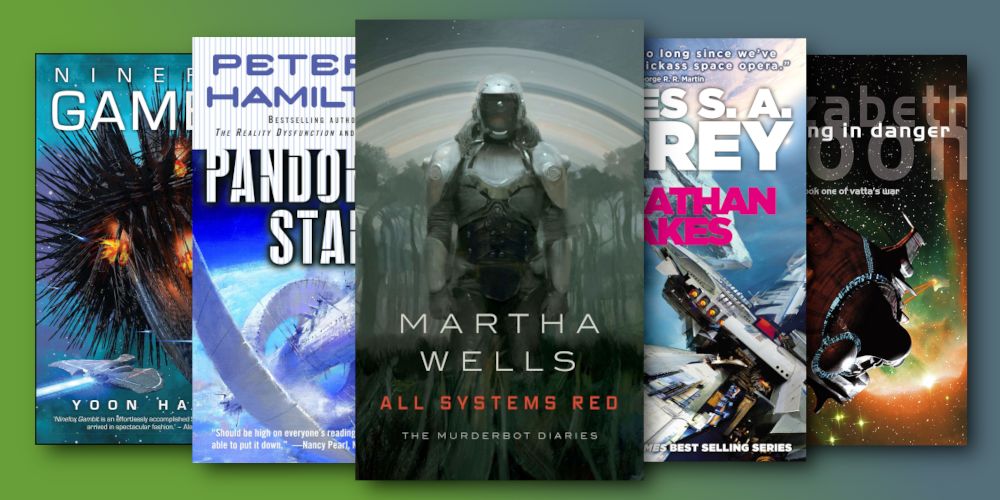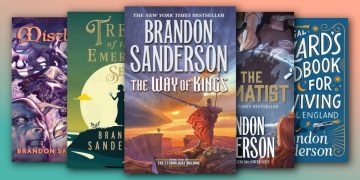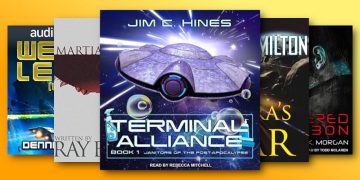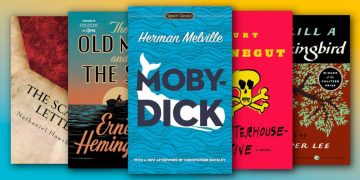Looking for great space opera books to read? You're in for a treat!
What's so special about the space opera genre? How does it differ from regular science fiction? Well, it's not a new subgenre by any means—space opera has been around since the 1930s—but it's a popular one, with new novels still coming out every year.
Space opera often involves epic space battles, massive galactic stakes, and an outer space setting. It's much more melodramatic than hard science fiction, yet entertaining all the same.
Here are my picks for the best space opera books worth reading, whether you're new to the subgenre or a growing fan!
20. Revelation Space
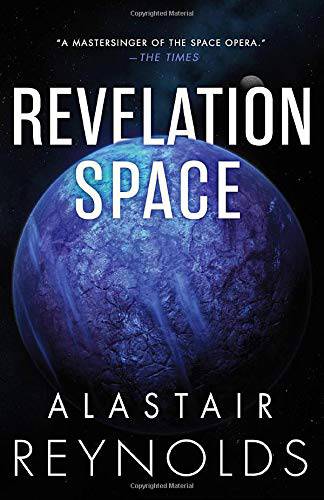
Authored by Alastair Reynolds
First published in 2000
Series: The Inhibitor Sequence
585 pages — 3.99 on Goodreads
Yes, you're going to find Alastair Reynolds on this list twice. I've included Revenger and its sequels further down this list, but the Revelation Space universe is a must-read for every sci-fi novel fan.
While it's possible to read this as a standalone novel, chances are good that you'll end up wanting to read everything else in the series after the book ends. It's that good!
19. Ninefox Gambit
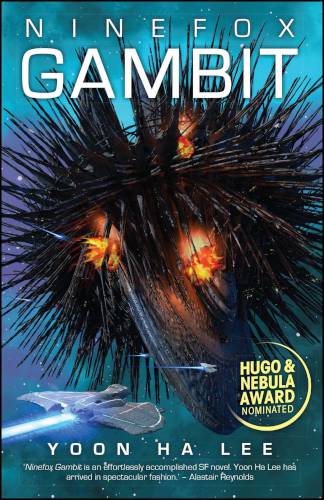
Authored by Yoon Ha Lee
First published in 2016
Series: The Machineries of Empire
384 pages — 3.80 on Goodreads
Yoon Ha Lee's Machineries of Empire series straddles the line between space opera and military science fiction, blending the two with a little science fantasy in the process.
Main character Kel Cheris has to share her consciousness with that of Shuos Jedao, a traitor with information too valuable to let go, but is too dangerous to be left to his own devices.
18. Trading in Danger
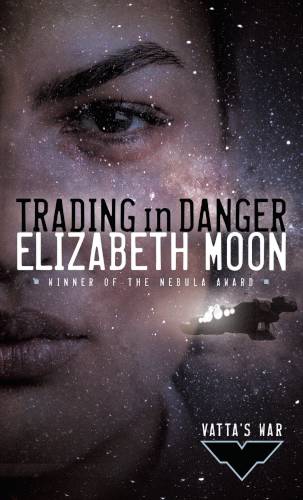
Authored by Elizabeth Moon
First published in 2003
Series: Vatta's War
357 pages — 3.99 on Goodreads
This is the first book in Elizabeth Moon's Vatta's War series, though there is a noticeable lack of war throughout most of the novel—at least any war that Kylara Vatta herself engages in.
Instead, she's trapped in the middle and stuck making tough decisions in order to protect herself, her crew, and her cargo. Later books in the series raise the stakes considerably.
17. Skyward
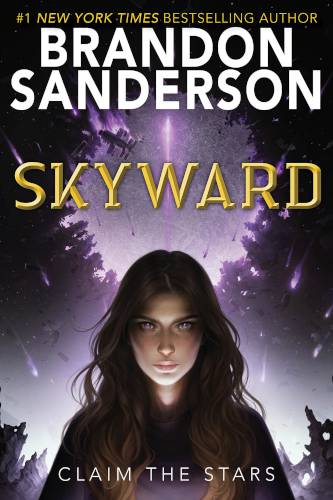
You may be familiar with Skyward series' author Brandon Sanderson from our roundup of super-long fantasy series worth reading, but he doesn't only write fantasy.
Yeah, a lot of fans are surprised to learn that Sanderson also writes science fiction from time to time. Skyward, like Sanderson's The Reckoners series, is classified as young adult but don't let that stop you from reading it. It's really good.
16. The Hitchhiker's Guide to the Galaxy
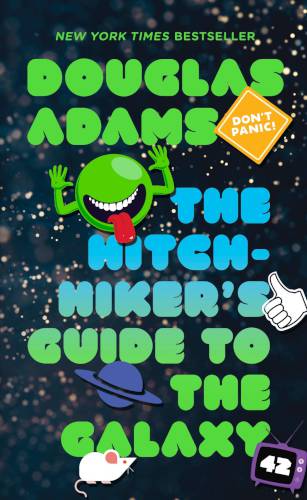
Authored by Douglas Adams
First published in 1979
Series: The Hitchhiker's Guide to the Galaxy
216 pages — 4.23 on Goodreads
Bringing a little humor into science fiction is never a bad thing, and you'd be hard pressed to find anyone better at it than Douglas Adams.
The Hitchhiker's Guide to the Galaxy was a radio play before it was a novel, but the book and its sequels are now considered the definitive way to see the universe through Adams's eyes.
15. Leviathan Wakes
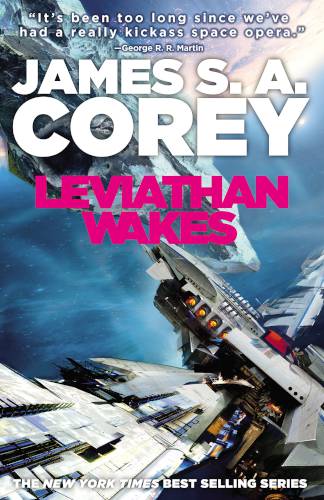
Authored by James S. A. Corey
First published in 2011
Series: The Expanse
592 pages — 4.29 on Goodreads
This first novel in the Expanse universe by James S.A. Corey (a.k.a. Daniel Abraham and Ty Franck) will be familiar to fans of the TV series, but the events and the order in which they unfold are slightly different in the novel series.
Even if you've already watched every episode of the TV series, this book (and its sequels) are all worth reading again!
14. All Systems Red
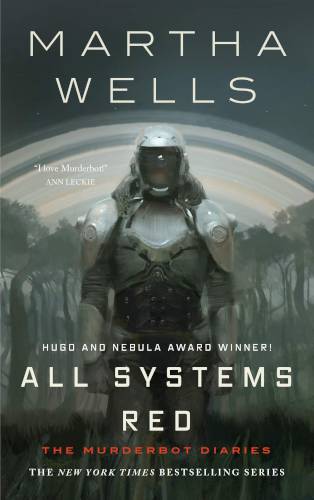
Authored by Martha Wells
First published in 2017
Series: The Murderbot Diaries
144 pages — 4.16 on Goodreads
Murderbot. That's the name that the main character of Martha Wells's Murderbot Diaries has given themselves because, well, that's what they're meant to be.
All Systems Red is a novella—a rather short one—about a robot who wants to get their job done so they can get back to watching their favorite shows. The good news is that there are plenty more in the series after you've finished the first.
13. Pandora's Star
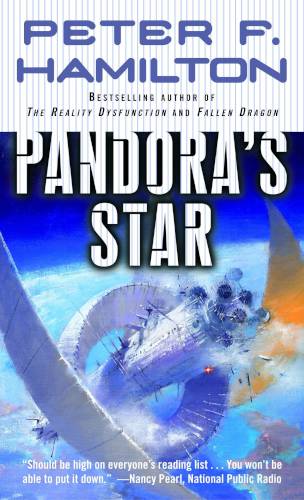
Authored by Peter F. Hamilton
First published in 2004
Series: Commonwealth Saga
768 pages — 4.23 on Goodreads
Before you read Peter F. Hamilton's Pandora's Star, you need to be aware that it's really only the first half of a mega-long book.
They're both worth reading, as the two novels combined feature a truly alien species, wormhole-traveling space trains, and memory crystals that essentially mean immortality. Yeah, there's a lot here.
12. Revenger
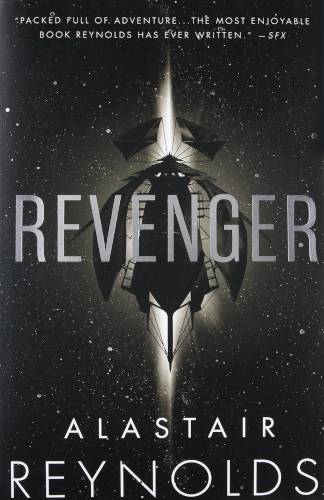
Authored by Alastair Reynolds
First published in 2016
Series: The Revenger Trilogy
425 pages — 3.82 on Goodreads
Alastair Reynolds is one of the more prolific authors in science fiction, and while not everything he writes is space opera, the vast majority is.
While some critics have referred to Revenger as young adult, Reynolds himself calls it "a straightforward SF novel that also happens to be accessible, and perhaps accessible to somewhat younger readers."
If you like space pirates and Firefly, you'll love Revenger.
11. Ancillary Justice
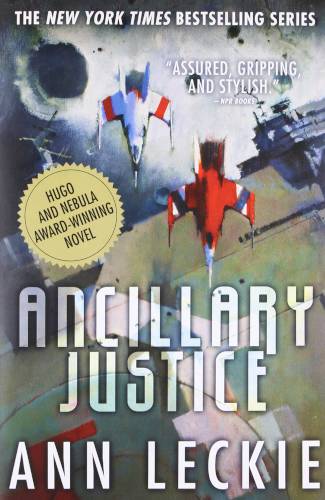
Ancillary Justice by Ann Leckie is massively imaginative, big-picture space opera set so far in our own future that it's barely recognizable.
The plot skips back and forth through time, weaving narrative threads until they form the cloth of the novel, but this is still very much space opera in the classic sense, and in the best way.
10. Old Man's War
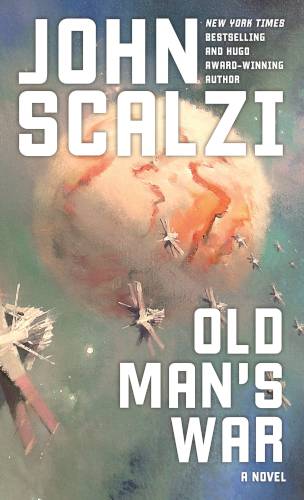
John Scalzi's Old Man's War is, by the author's own admission, influenced by Robert Heinlein's novels, particularly Starship Troopers, though Old Man's War is a lot more fun.
Following geriatric characters who enter military service to get off Earth and regain their youth, this book's take on space opera both pays homage to and lightly pokes fun at classic space opera.
9. The Long Way to a Small, Angry Planet
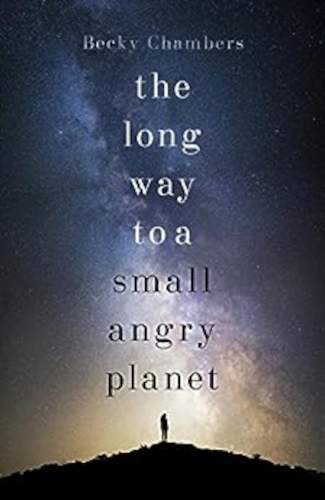
Becky Chambers's debut novel The Long Way to a Small, Angry Planet was enough to garner her critical acclaim and a large fan base.
The plot focuses on Rosemary Harper, a young woman with a past that she'd like to escape. What better way to do that than on a spaceship that's capable of entering warp speed?
The spaceship's crew include a hodgepodge of different species, all of whom just want to make enough money to retire comfortably.
Of course, the mission they've been sent on will make them earn every last cent—but first, they will have to traverse large portions of space that have been devastated by intergalactic war.
Critics and readers alike love The Long Way to a Small, Angry Planet, which is funny, exciting, and heartwarming. What more could you ask from an author's first release?
8. Ender's Game
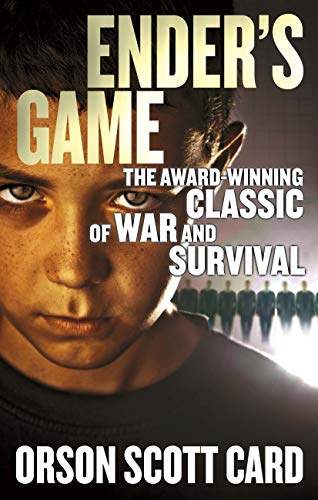
Authored by Orson Scott Card
First published in 1985
Series: Ender's Saga
324 pages — 4.31 on Goodreads
Ender's Game is one of the most classic sci-fi novels for how it reinvigorated the space opera genre despite its YA trappings.
Written by the critically acclaimed Orson Scott Card (who remains the only person to win a Hugo Award and a Nebula Award in a row), Ender's Game is his defining achievement.
The plot follows Andrew "Ender" Wiggin as he's recruited by the military to aid them in their war against "the buggers," a species of alien insectoids that are warring against Earth.
At the military academy, Ender is tasked with playing war strategy games, which reveal that he's a genius of unparalleled proportions.
Ender's Game is the one space opera that every adolescent should be given the opportunity to read. It's that good.
7. Startide Rising
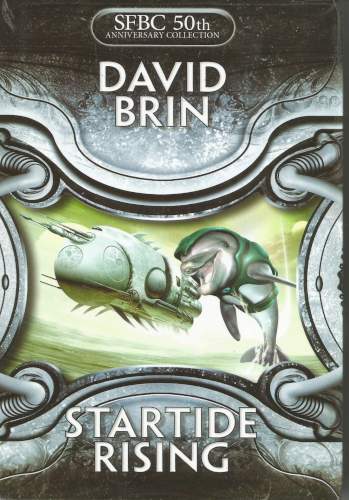
First published in 1983, David Brin's novel Startide Rising is the second book in his Uplift Saga series and his most celebrated work.
The critically acclaimed book is set in 2489 C.E. After a series of mishaps, the spaceship Streaker discovers what appears to be an alien corpse.
Intrigued by their discovery, they notify their commanders on Earth, sending a hologram of the extraterrestrial. But when they get a chilling reply from their higher-ups, things become exceedingly complicated.
Winner of both the Nebula and Hugo Awards, Startide Rising is a classic space opera that's still worth reading today.
6. Falling Free
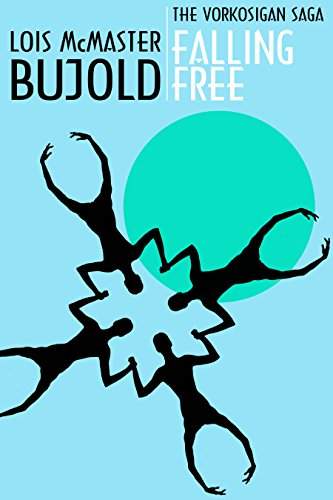
Authored by Lois McMaster Bujold
First published in 1988
Series: Vorkosigan Saga
320 pages — 3.84 on Goodreads
When Lois McMaster Bujold debuted the Vorkosigan Saga in 1986, it was to the delight of every fan of sci-fi literature—and the best work in this historic series remains the fourth book, Falling Free.
It follows a strange development in human anatomy where genetically altered humans have arms where their legs should be. Yikes...
Given the moniker "Quaddies," these people were designed—by a large corporation—to function in weightless environments, all for the purpose of exploiting them for cheap labor.
In fact, they go as far as declassifying them as humans. What follows is a novel about freedom, capitalist greed, and the human condition.
5. Gateway
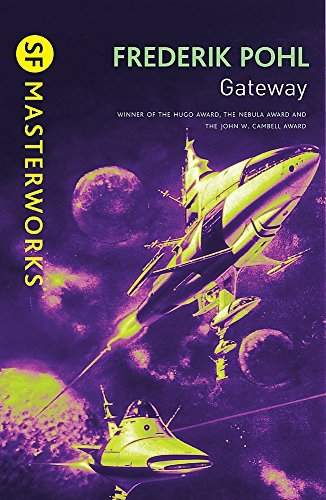
Authored by Frederik Pohl
First published in 1977
Series: Heechee Saga
278 pages — 4.06 on Goodreads
Frederik Pohl's groundbreaking novel Gateway won the Nebula Award, the Hugo Award, and the John W. Campbell Award when it was first published in 1977. How's that for critical acclaim?
The story follows the phenomenon of Gateway, an interstellar portal that was carefully crafted by the Heechee, an alien race that's been extinct for quite a while now.
Today, humans use Gateway as a way to travel through space and find either immense wealth or painful death. The choice is never certain.
The first book in what would become the Heechee Saga, Gateway is a mesmerizing work of must-read science fiction.
4. Hyperion
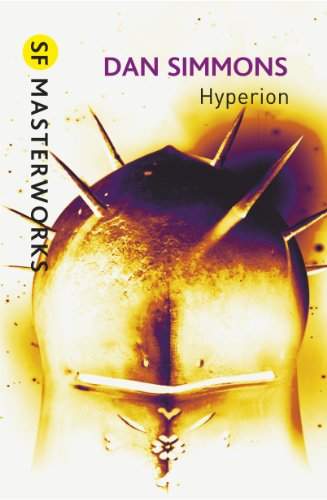
Authored by Dan Simmons
First published in 1989
Series: Hyperion Cantos
500 pages — 4.26 on Goodreads
Hyperion, one of the most famous space opera novels of all time, has the unique distinction of being based on The Canterbury Tales by the English poet Geoffrey Chaucer.
The story is set in the year 2732, where humans living on space stations are planning an invasion of Hyperion, a distant planet with so-called Time Tombs that are moving backwards in time.
It's an interesting start to what would become the Hyperion Cantos series, and it's one of the best modern science fiction series, having won the Hugo Award in 1989.
3. Solaris
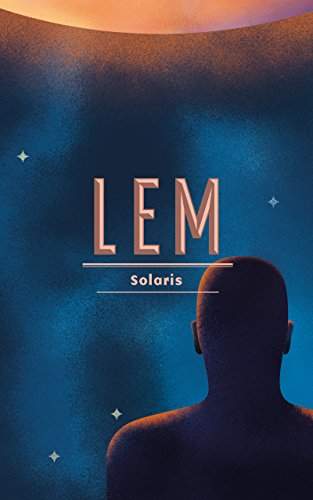
Before it became the romance drama film starring George Clooney, Solaris was a sci-fi masterpiece directed by Andrei Tarkovsky—but before it was even that film, Solaris was a haunting space opera novel written by Polish author Stanisław Lem in 1961.
The story follows a crew of scientists who venture out to a space station to better understand an alien intelligence that they've come across. However, what awaits them is beyond their wildest imaginings.
While it wouldn't be until 2011 that the novel finally got a translated version that received the author's blessing, the story of Solaris was universally lauded well before that.
2. Foundation
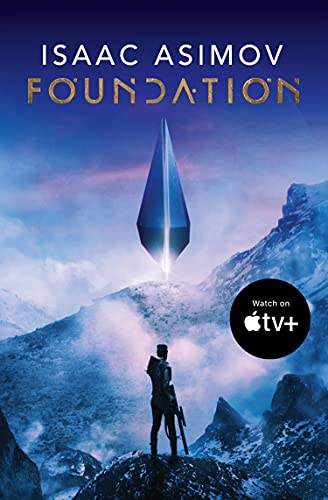
One of the most critically acclaimed works of science fiction of all time, Isaac Asimov's Foundation is the novel that launched one of the best space opera series ever written.
The story takes place in a Galactic Empire, in which mathematician Hari Seldon dedicates himself to the innovation of a new branch of science called psychohistory.
In his development of this new field, he discovers something rather troubling: the entire world as he knows it is about to end, right before plunging headlong into thousands of years of dark ages.
Isaac Asimov is known for being a titan of the science fiction world, with short stories and novels alike. However, his crowning achievement is undoubtedly Foundation, which would have made the top of this list if it weren't for just one other space opera novel...
1. Dune
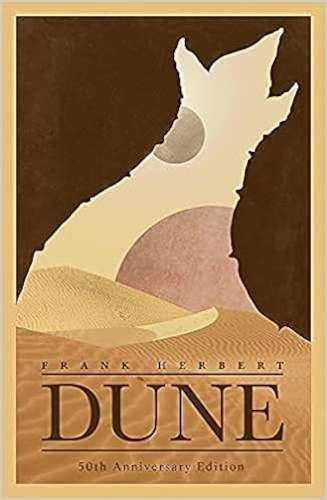
Before Denis Villeneuve made his very popular movie adaptation of Dune in 2021, Frank Herbert's landmark novel was considered unfilmable. After all, David Lynch tried and failed quite badly when he tried to adapt it in 1984.
Why was it considered unfilmable? Because Dune was simply too vast, too bold, too original in its vision. (Some even say that Villeneuve's adaptation still misses the mark and falls short.)
This epic, winding narrative follows the story of Paul Atreides, who arrives on the hostile planet of Arrakis after his father is sent to farm it for spice, a very sought-after commodity in this world.
Frank Herbert's novel was followed by five sequels and has since been described as the bestselling science fiction novel of all time. It's a clear pick for the best space opera novel ever written.
